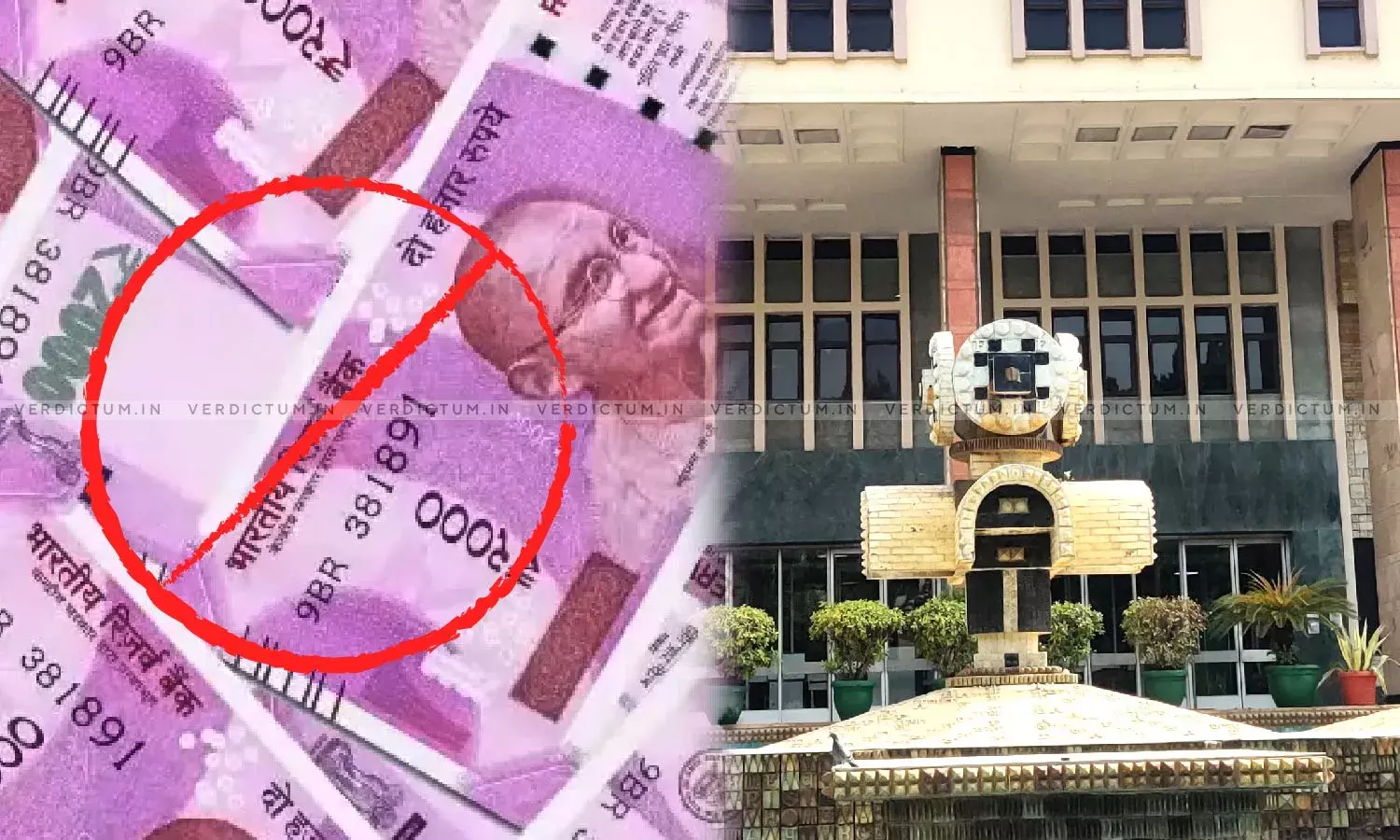Delhi High Court Reserves Order In Plea Challenging Exchange Of ₹2000 Notes Without Identity Verification

The Delhi High Court today reserved the order in the Public Interest Litigation challenging the Reserve Bank of India (RBI) notification dated May 19, 2023, and the State Bank of India (SBI) notification dated May 20, 2023, which permitted exchange of Rs. 2000 banknotes without obtaining any requisition slip and identity proof.
The Bench of Chief Justice Satish Chandra Sharma and Justice Subramonium Prasad after considering the submissions of both parties reserved its order. Advocate Ashwini Kumar Upadhyay, appearing in person, at the outset submitted that there is some minor correction which is necessary, he said: "I am not challenging the entire notification but just so far as it allows the exchange without seeking the identity proof". The Petitioner clarified to the Bench that his prayers do not intend to challenge the entire notification but only the part where Rs. 2000 notes are being exchanged without any slip or identity proof.
Ashwini submitted that "previously what used to happen is anyone hoarding black money could make it white by paying 50% of it as a penalty and keeping the rest 50% with themselves. Now the Banks are saying just bring the money and we don't require any of your document." He further said that "even while entering the High Court, we have to show a pass".
The Petitioner-in-person also submitted that the only question he raises is, "Why the Identity proof is excluded?" Ashwini further added that any person can exchange up to Rs. 20,000/- per day.
Senior Advocate Parag P Tripathi appearing for the Respondent RBI opposed the PIL and submitted that "There are two judgements which directly cover the matter of economic policy, where your lordships have consistently held that the Court should not get into it." The Counsel relied on the judgement of R.K. Garg And Ors. vs Union Of India (Uoi) And Ors (1981) 4 SCC 675) and Balco Employees Union (Regd.) vs Union Of India & Ors decided on 10 December 2001 and submitted that this has been the consistent Law.
Clarifying the RBI notification, the counsel submitted that "First of all this is not demonetization and that notes of Rs. 2000 were introduced to meet the currency requirement. It was also observed that this denomination is not commonly used in transactions and the other notes denominations are adequate". He further added that in view of the clean note policy of the RBI, the Rs.2000 note was decided to be withdrawn.
Tripathi added that "This is a statutory exercise and none of the points which my Ld. friend raises in any manner deals with the constitutional issue. The Petition should be dismissed with exemplary cost."
The Delhi High Court Bench led by the Chief Justice noted the submissions and reserved its order. The Petitioner further implored the bench to pronounce its decision, he said "If milords are not issuing notice, at least ask them to file a status report. Otherwise, the orders may be pronounced today so that if dismissed, I can approach the Supreme Court."
In the Petition moved under Article 226 of the Constitution by Advocate Ashwini Kumar Upadhyay it has been highlighted that as per the RBI notification, the circulation of Rs. 2000 banknotes have declined from Rs. 6.73 lakh crore to 3.62 lakh crore and that these remaining 3.11 lakh crore have either reached the individual's locker or has been hoarded by the separatists, terrorists, Maoists, drug smugglers, mining mafias and corrupt people.
Upadhyay in his plea has alleged that including 48 crore Jana Dhan Bank accounts of BPL families there are a total of 225 Crore Bank Accounts for a population of 142 Crore people in India and that 130 Crore Indians have AADHAR Cards which depicts that every family has a bank account and therefore the RBI should not permit the exchange of Rs. 2000 notes without obtaining identity proof. The plea also states that 80 Crore Indians receive free grains and would hardly ever use Rs. 2,000/- banknotes.
Cause Title: Ashwini Kumar Upadhyay v. Union Of India & Others [Diary No. 931442 of 2023]

